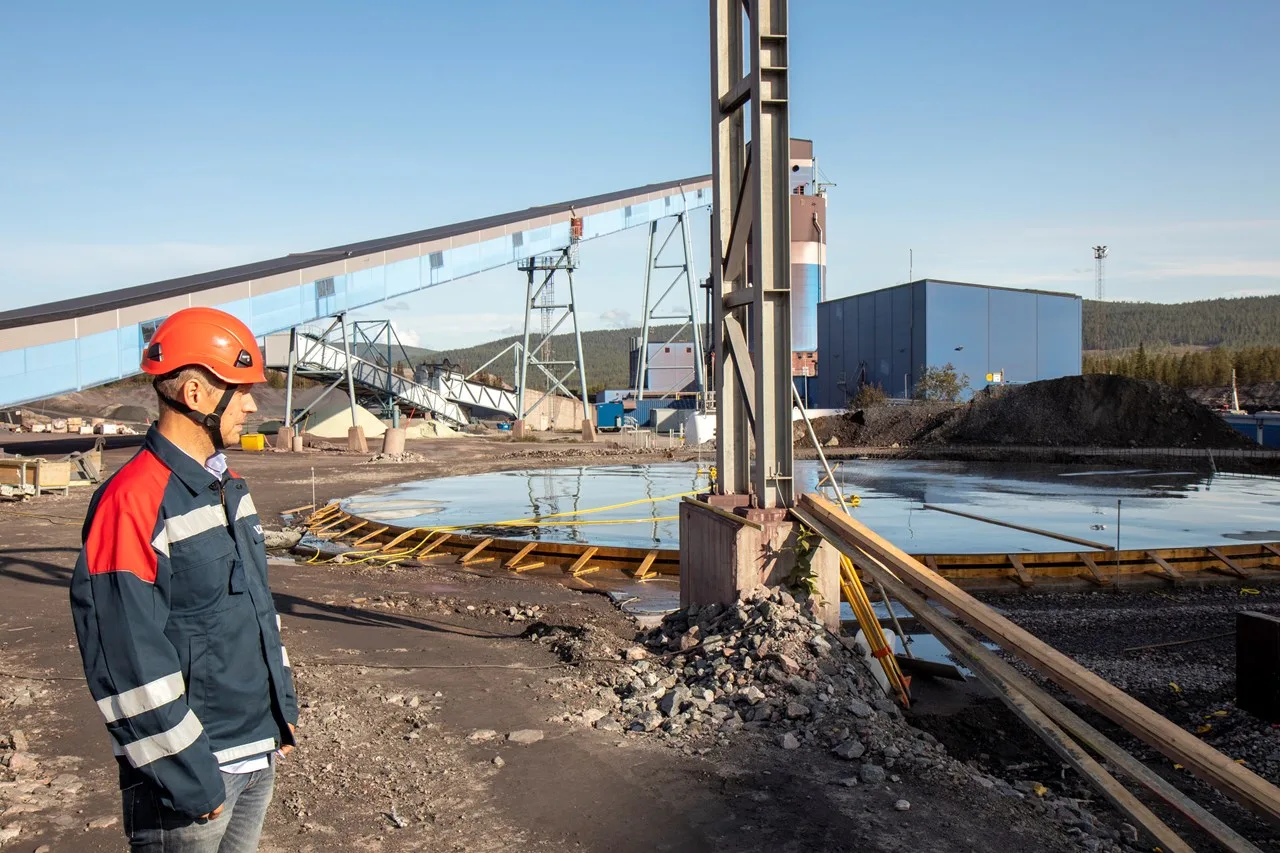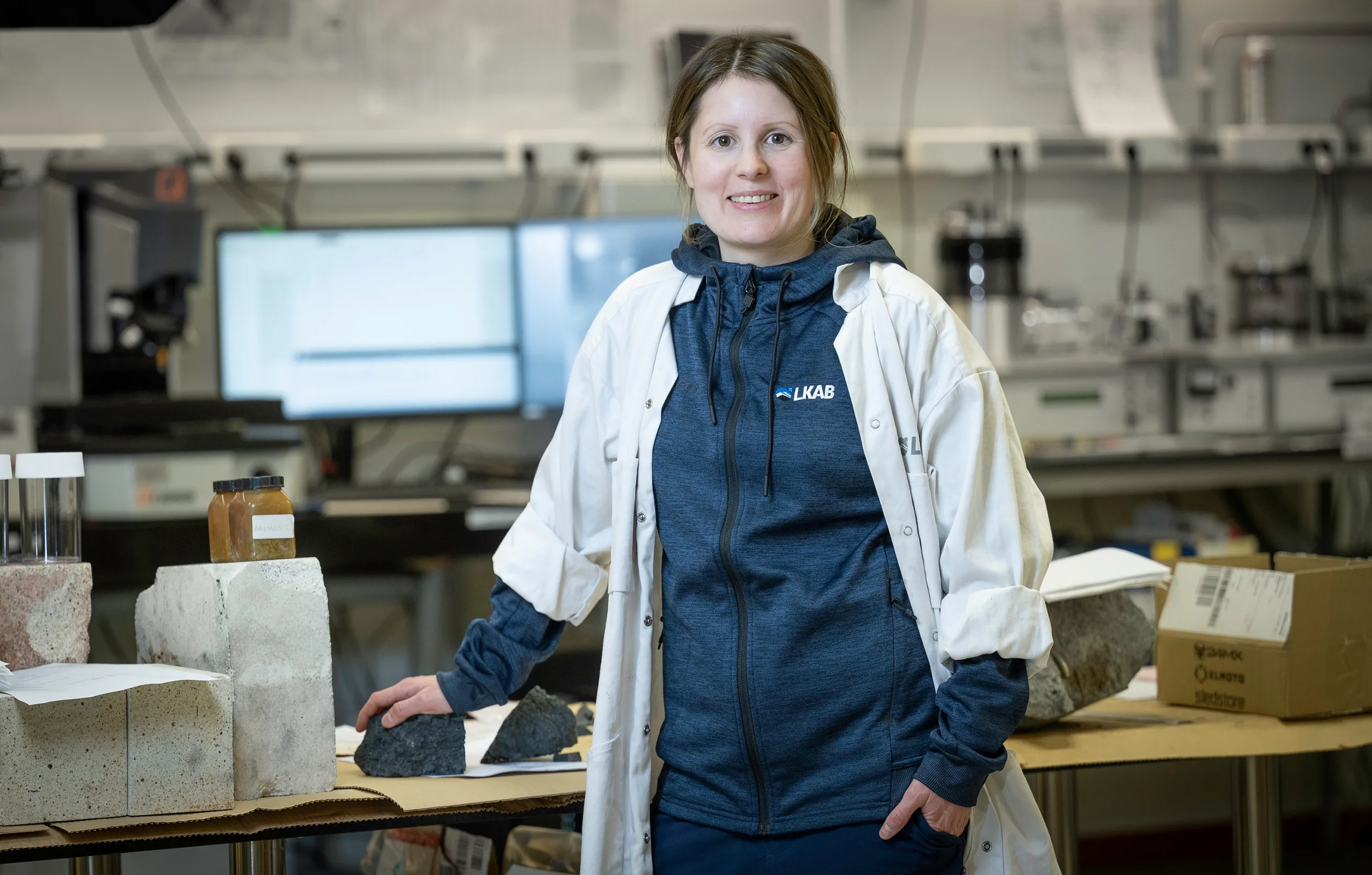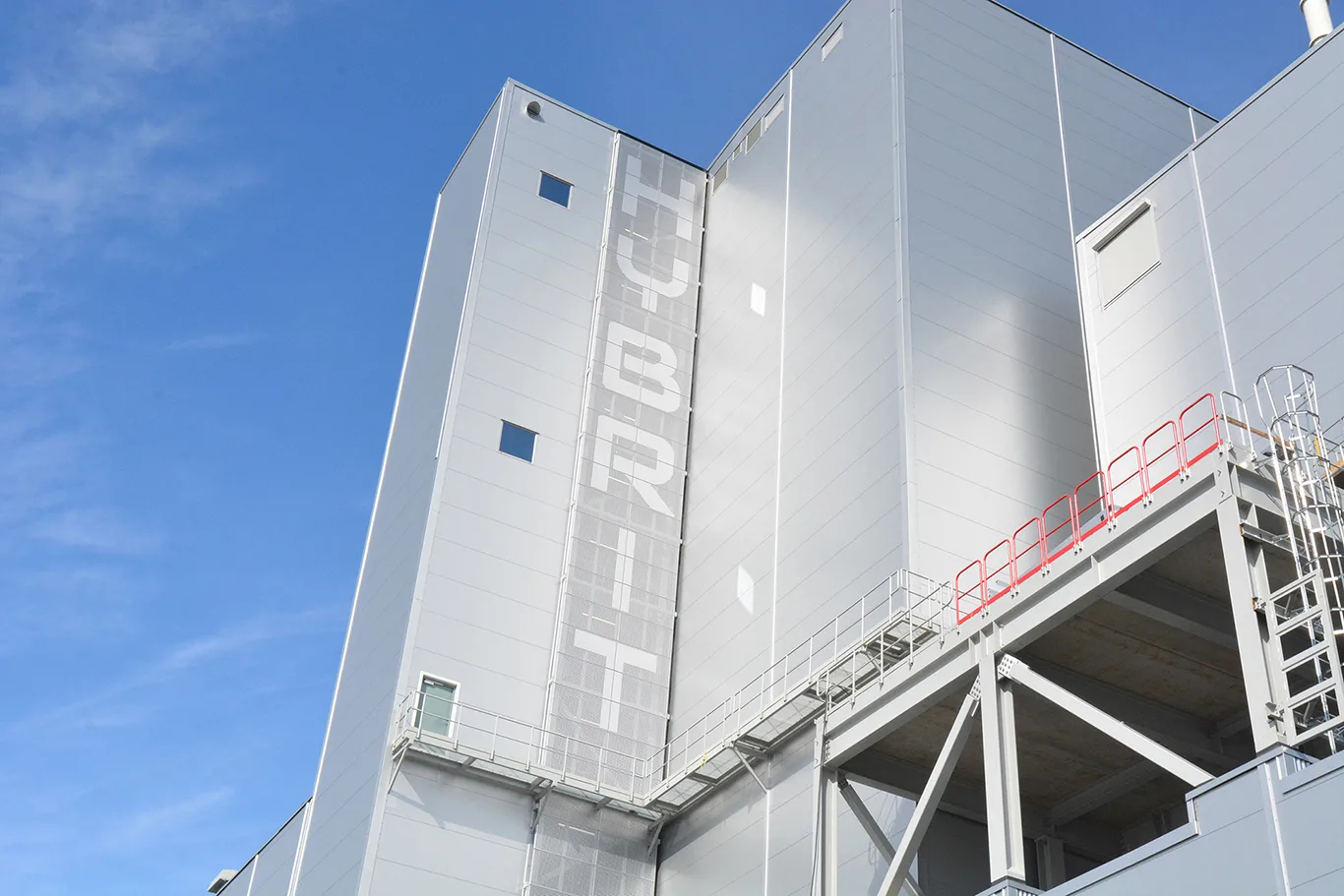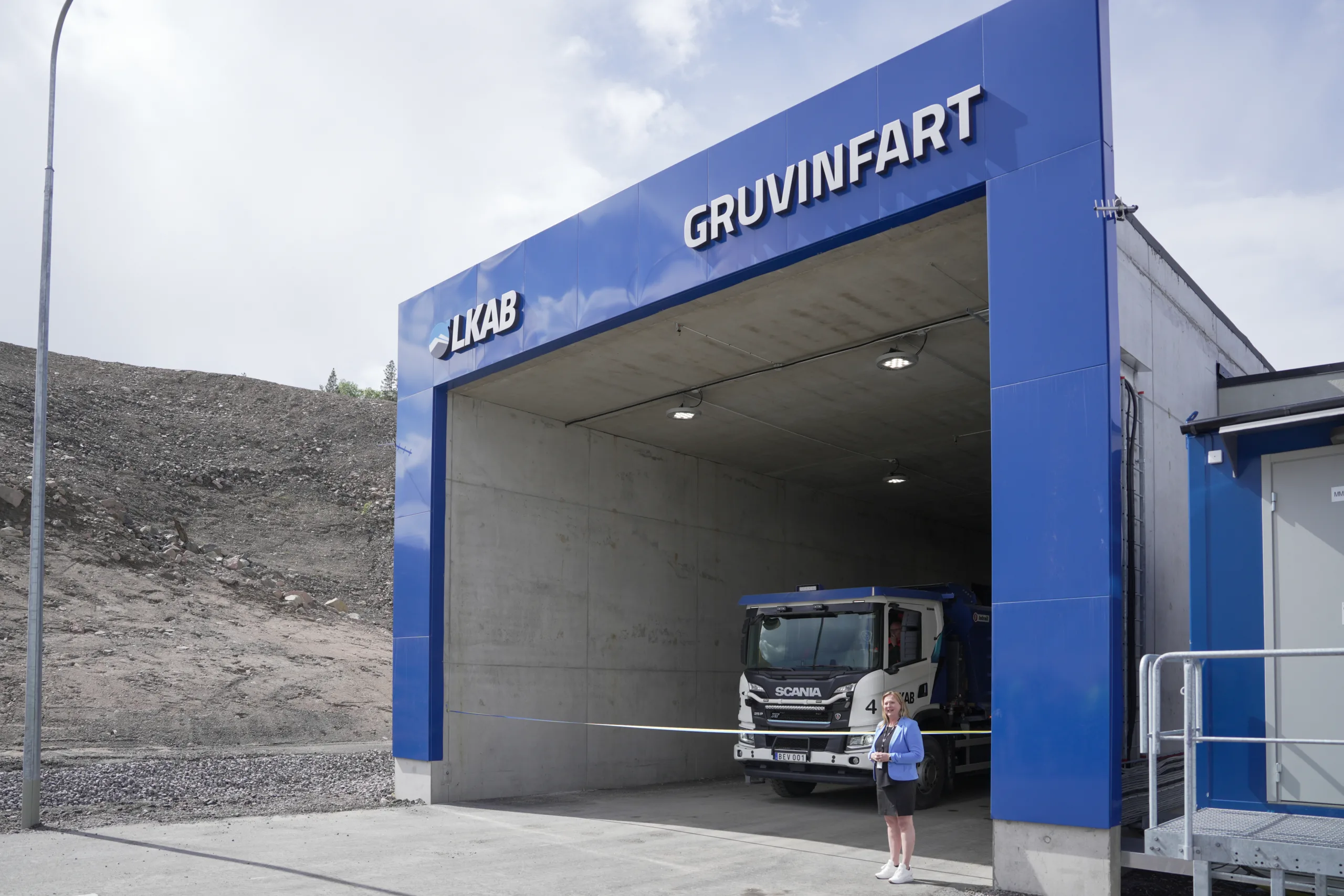Fossil-free Pellets on the Way

It may not look like much yet, but a globally unique pilot plant is currently under construction on an industrial estate in Vitåfors. The aim is to produce an entirely fossil-free fuel.
The test plant is the next stage in the pilot phase of the HYBRIT initiative. Here, fossil fuels will be replaced by bio-oils to provide completely fossil-free production, initially at one of our pelletisation plants.”What we are building is actually a completely new system for using bio-oil in the processing, with storage, pumping and heating of the oil – the complete chain up to the furnace in the plant,” says project manager Emil Olsson.
This means that total fossil carbon dioxide emissions for the Malmberget plant will be reduced by as much as 40%, which is equivalent to approximately 60,000 tonnes per year during the test period. The vision is that this will ultimately lead to entirely fossil-free production.”Bio-oil testing is a fantastic step towards the vision of a completely CO2-free LKAB. With this conversion we will be producing a fossil-free pellet during the trial period, something that we will probably be the first in the world to achieve. Only diesel and some of the heat production will remain fossil-based; however, we are also working to identify solutions to this,” says Roger Karlsson, R&D manager at LKAB.
Work is currently underway to lay the foundations for the cistern, oil housing and electrical container. The next step will be to install the partially prefabricated cistern.”This is not exactly a complicated construction; the principles are the same as the plants we operate today. The challenge lies in the different physical properties of bio-oils that we need to account for. The plant needs to be able to handle more aggressive and unwieldy oils,” says Emil Olsson.
Among other things, this requires acid-resistant materials to prevent corrosion. Bio-oils also generally have a higher viscosity and require more heating.”Naturally, it will be slightly more challenging to build but it will clearly pay off in the long-run.”LKAB will be constructing the plant before handing it over to HYBRIT, which will be the owner. It is planned to complete construction in March next year and to be fully operational during May. Initial testing will be conducted until 2021.”Bio-oil is a stepping stone towards an even greater vision of a completely CO2-free LKAB in which not even bio-based carbon dioxide is emitted. It is impressive that LKAB has chosen to take on this tough challenge; it is a display of decisiveness and demonstration of just how seriously we are taking the issue of climate change,” says Roger Karlsson.




